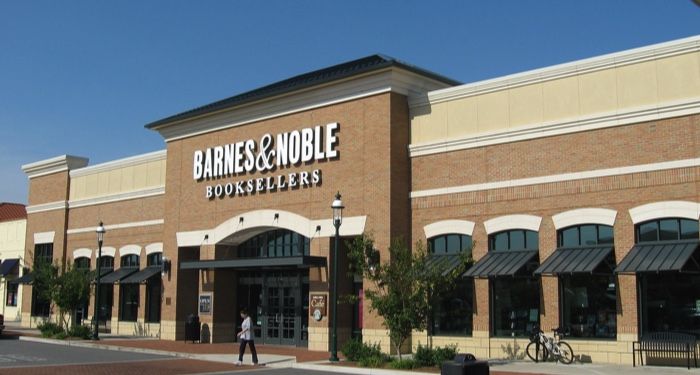Barnes & Noble (B&N), who has been working to rebrand themselves as more of an independent bookstore over the last couple of years under new leadership, is making changes to its membership programs. The former program, which cost $25 a year, gave members 40% off hardcover bestsellers, 10% off all in-store purchases, free shipping online, and a few bonus perks through the year.
Now the last remaining major bookstore brick and mortar chain is creating two new tiers of programs. The first, B&N Premium Membership, will cost $40. B&N Premium Membership comes with 10% off almost everything online and in store, a free size upgrade on cafe beverages, an annual free tote bag (under $19.99), free shipping online, and a new stamp program. One stamp is earned for every $10 spent, and 10 stamps lead to a $5 reward. That $5 reward comes only after spending $100.
This 60% price increase to the paid rewards program no longer offers a 40% discount on hardcover bestsellers.
The second membership, Barnes & Noble Rewards, will be free. Those who register will be enrolled in the stamp program, wherein every $10 spent earns one stamp, and 10 stamps lead to a $5 reward. There are no additional benefits to the program, and ebooks and digital products from B&N are not included in the rewards program at either level.
As James Daunt, CEO of B&N told the Wall Street Journal, the company sees this as an opportunity to get to know their customers; prior to the development of the free program, data on customers was limited. Daunt believes that nearly three-fourths of current Members will convert to the newly created $40 membership, which he compares to services like Walmart+ and Amazon Prime. Prime increased their price this year, too, up to $139 from $119.
These changes follow other major shifts by the bookseller in what they sell in stores. As Jenn Northington explains, the pressure to sell the hottest titles, the pulling away from pay-for-placement table models, smaller stores, and a decrease in purchasing by the retail giant have caused many to note that there are fewer hardcovers in stores. This blow to discovery means that fewer books can be found in stores, and that the standard for “proven sales” to land titles in stores will create further challenging conditions for midlist and marginalized authors. Indeed, Daunt has gone on record saying that stores can do as much for sales in 8000 square foot facilities than in previous 25,000 square foot facilities — but this, of course, puts discoverability beyond the bestsellers in the air.
Stores are shrinking, benefits for members are shrinking, and the cost of both books and memberships continue to increase.
Although the changes to these new membership programs has made the rounds, another just-announced change to B&N services has not received the same attention. The company announced via email last week that they are also ending their Educator Benefits program.
B&N’s Educator Program offers free discounts to teachers, counselors, administrators, and others working within public, private, parochial, or home schools. Both in store and online, those in the program could receive 20% off hardcover and paperback books, toys, and games for classroom use; it also included periodic 25% off offers on days honoring educators.
Those enrolled in the program learned it would be discontinued via email last week but were encouraged to take advantage of the new B&N Premium Membership. Educators were offered a free year to start, but the $40 annual fee would apply at renewal.
Unfortunately, the perks for the new Premium Membership do not align with the prior perks for those in the Educator Program. The discount is far less on every item while coming at an annual cost. Educators who take advantage of the free signup offer will void their current enrollment in the program, meaning that they’ll immediately lose the better deal of the Educator Program in exchange.
In a moment when spending on books is down and when budgets for educators and general consumers are shrinking, the confidence Daunt has in a 75% conversion rate to the new program makes little sense, particularly one which offers fewer benefits than the original program. Moreover, sunsetting the Educator Program in an era of book bans and censorships and rising book costs — some YA hardcovers are clocking in at $25 each this year, which even with the 10% discount offered through the program, does not bring it to the previous price point of $19.99 — only showcases that the importance is not on literacy and education, but instead, the bottom line. Kicking educators when they’re already down is a far cry from supporting them.
Reading is becoming a luxury activity, and businesses like Barnes & Noble are complicit in making it inaccessible.
